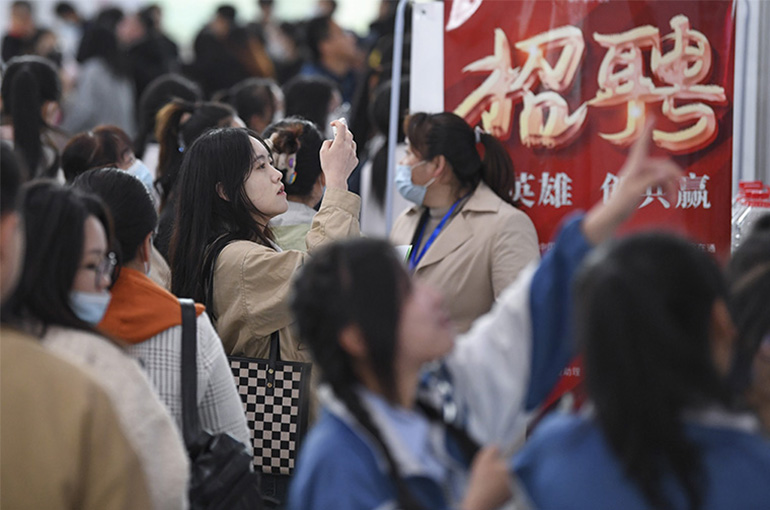 Gov’t Steps In to Boost China's Jobs Market for First Time in Over Two Decades
Gov’t Steps In to Boost China's Jobs Market for First Time in Over Two Decades(Yicai) Sept. 26 -- The Chinese central government has issued a document urging businesses to create more jobs in the first such intervention in nearly 22 years as the country’s structural unemployment, which is a long-lasting form of unemployment resulting from fundamental shifts in the economy, rises.
Efforts should be made to create more high-quality jobs, including upgrading traditional industries, fostering emerging industries, nurturing future industries and accelerating the development of advanced manufacturing clusters, according to guidelines published by the Central Committee of the Chinese Communist Party and the country’s cabinet, the State Council, yesterday.
Measures should also be taken to expand new job spaces in the digital economy, create more new jobs related to green industries and cultivate new growth points of employment by developing the silver economy, the document said.
The last time the Chinese central government intervened on employment was in 2002. At the time it introduced a re-employment policy for people who had lost their jobs that is still influential today.
The number of new urban jobs in China has remained at around 13 million per year in recent years, and the unemployment rate has stayed at 5 percent. However, the country's job market still faces a structural imbalance, as young people are struggling to find jobs due to factors such as industrial transformation and demographic changes.
China's urban unemployment rate climbed 0.1 percentage point in August from the month before to 5.3 percent, according to the latest data from the National Bureau of Statistics. But, of this, the jobless rate of young people aged between 16 and 24, not including students, jumped 1.7 percentage point month on month to reach a yearly high of 18.8 percent.
To solve structural unemployment, the central government is calling for an improved match between the educational courses on offer and companies’ human capital needs, such as by expanding science, engineering, agriculture and medical majors, Li Chang'an, a researcher at the Academy of China Open Economy Studies at the University of International Business and Economics, told Yicai.
This is the first time ever that such a proposal appears in an employment document, Li said.
Supporting flexible workers employed by Internet platforms is also a key part of the document. This includes expanding the pilot project of granting occupational injury insurance to freelancers, ensuring their right to be aware of their platform's labor rules, and smoothing the channels for them to protect their rights.
Editors: Dou Shicong, Kim Taylor